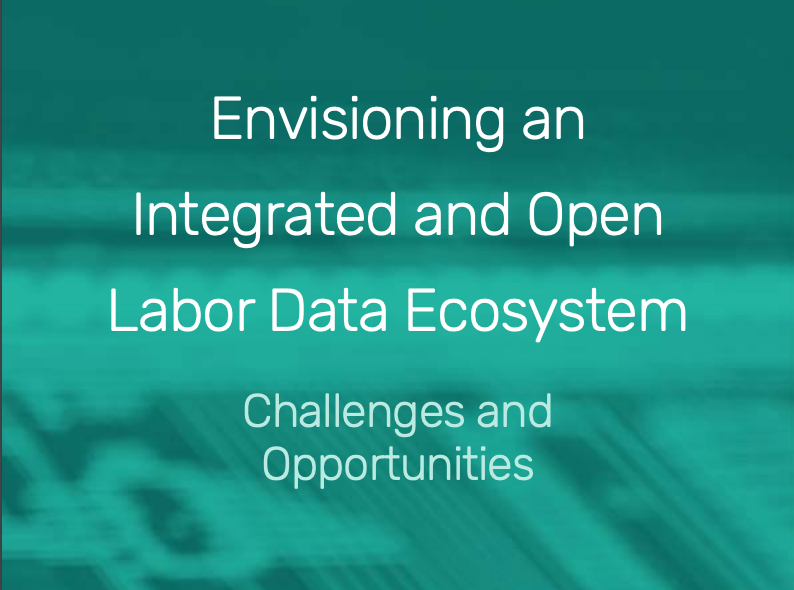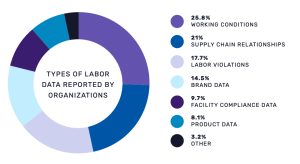
This is a guest post written by Aileen Robinson, program lead for Value Chain Transparency at WikiRate.
WikiRate is an open data platform that brings corporate ESG data together in one place, making it accessible, comparable, and free for all. Visit WikiRate’s blog for more, including a version of this blog post with additional takeaways.
This week WikiRate released a report commissioned by Humanity United that scopes out the opportunities and challenges involved in building an open and integrated data ecosystem for labor rights in supply chains.
Register here for a webinar on the 15th of September where the WikiRate team will present the report and demystify some of the strategies and tools that can be applied to open up data.
———-
 Covid-19 has shone a light on the vulnerabilities of global supply chains and hit supply chain workers particularly hard leaving them exposed to job losses without severance pay, unsafe working conditions and unpaid or reduced wages.
Covid-19 has shone a light on the vulnerabilities of global supply chains and hit supply chain workers particularly hard leaving them exposed to job losses without severance pay, unsafe working conditions and unpaid or reduced wages.
Both prior to and during the pandemic, the work of labor rights organizations and advocates has been indispensable in bringing these issues to light. But to what extent are these organizations collaborating and sharing their insights with one another?
As an open data and research platform, WikiRate has been working on enabling data sharing between organizations for some time and has brought several labor rights datasets into the public sphere. Our work has centered on bringing data into the open, but we have remarked over the years on how few organizations are sharing their data with each other.
This can lead to duplicated work where two or more organizations are asking the same questions of companies, workers or supply chain facilities. When data is held in silos, it can also make it difficult for organizations to get access to the data they need to achieve and prove their impact.
 With this in mind, Humanity United commissioned WikiRate to undertake a research project to assess the current landscape of data sharing amongst organizations and give recommendations for how an open and integrated labor data ecosystem could be realized.
With this in mind, Humanity United commissioned WikiRate to undertake a research project to assess the current landscape of data sharing amongst organizations and give recommendations for how an open and integrated labor data ecosystem could be realized.
High-level findings include:
- Of those organizations who do make data public, only 53% do so under explicit licensing which is required to allow others to re-use, modify and share the data
- Nearly one third of organizations do not have data sharing infrastructure (such as an API.)
- Civil society organizations in particular are being hampered from sharing data with others through a lack of technical infrastructure and capacity
- Data sharing is being held back by poor data management practices including proper labelling and documentation of datasets
The project report gives readers an introduction to open data, addresses the question of how open labor data can really be and includes a section on fostering trust through good governance, inclusive approaches and robust data protection strategies.
Through this project we also compiled a list of seven archetype organizations in the space which were drawn from interviews and surveys with twenty-six labor rights organizations. These are used in the report to guide organizations through the key challenges and opportunities which may affect their work.
The report and webinar include a list of recommendations to begin the process of building an open and integrated data ecosystem. These include several more long-term goals such as launching a pilot for data sharing, strengthening the technical capacity of organizations and the creation of a registry of labor rights organizations.
Once organizations are set-up for sharing, their combined potential for impact is huge. With the common goal of improving the lives of workers in supply chains around the world, we need to get our data talking.
